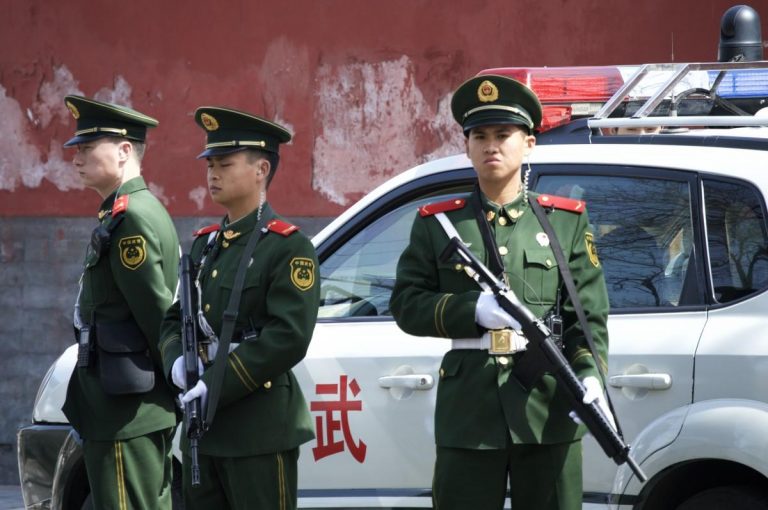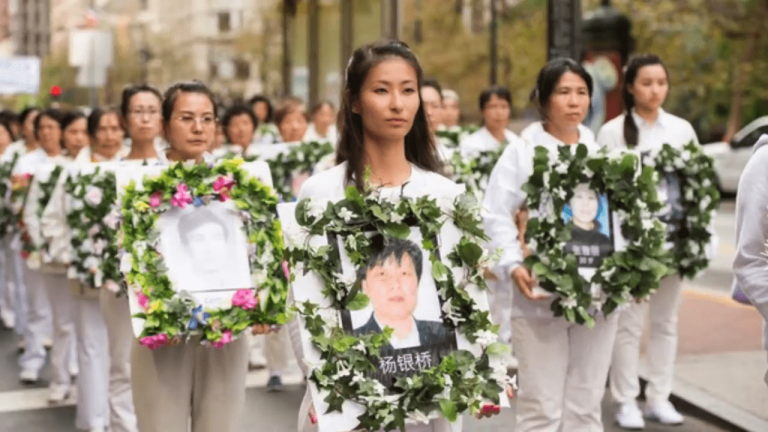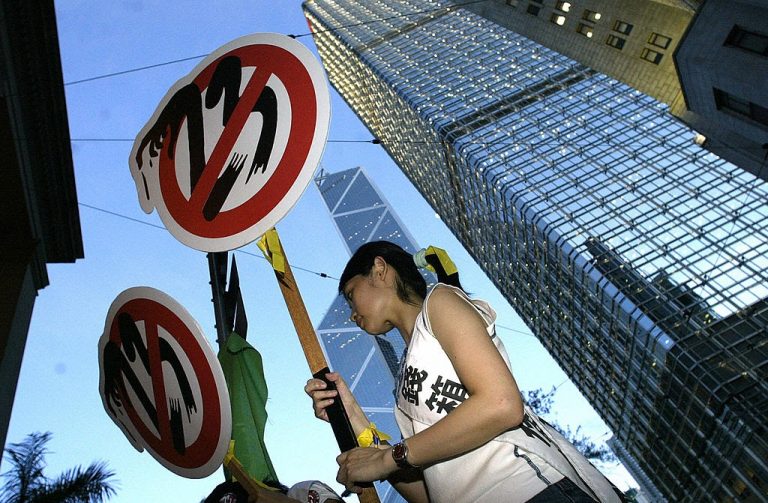According to a report by nongovernmental human rights group Safeguard Defenders, authorities in China have been locking up activists and members of disenfranchised groups in psychiatric facilities as a way to silence them.
The report, which was published this month, also highlights how the Chinese Communist Party (CCP) employs different tactics of intimidation and arbitrary detainment to suppress those who speak out against the government.
Titled Drugged and Detained: China’s Psychiatric Prisons, the report describes how the CCP has been employing this method of forcefully committing people into psych wards without proper medical justification — tracing the practice back to the 1980s.

MORE ON SILENCED ACTIVISTS IN CHINA:
- China Arrests Human Rights Lawyer Xie Yang, Charges Him With Subversion
- Disappeared: The Faces of Human Rights Activists Silenced by Communist China
- Chinese Activist Charged with Subversion Has Secret Trial, Family Barred from Attending
- Beijing Continues Deadly Persecution of Upstanding Chinese Citizens for Practicing Falun Gong
- Pregnant Chinese Schoolteacher Forced Into Psychiatric Hospital for Social Media Posts
The term, called Ankang or literally “good health” in Chinese, refers to a pipeline of police-run “psychiatric prisons” where activists deemed problematic can be sent to. According to the findings, doctors employed at these hospitals routinely subject victims to “medically unnecessary involuntary hospitalizations and compulsory medication” as a way of punishment.
The report also noted that though the Chinese government passed a Mental Health Law aimed at preventing this form of abuse in 2012, in actual practice, the policy has done little to change the rampant accounts of torture that continues occurring in psychiatric settings across the country.
Success
You are now signed up for our newsletter
Success
Check your email to complete sign up
The NGO added that the numbers of psychiatric hospitalizations compiled in the report are likely only the “tip of the iceberg,” as many cases never get reported by NGOs or the mainstream media.
Using secondary sources such as interviews from victims and their families, Safeguard Defenders found that at least 99 people had been locked up in psychiatric wards “144 times in seven years from 2015 to 2021, covering 109 hospitals in 21 provinces, municipalities or regions across China.”
A systemic form of abuse
According to several accounts, after being forcefully committed and subjected to harmful treatments against their will, some people experienced psychotic breakdowns and were never the same after undergoing these forms of torture and abuse.
The report also pointed out that in recent years, the CCP has intensified its efforts to “maintain stability” within the masses. In 2019, the budget for “safeguarding and maintaining stability” had reached an all-time high of 1.39 trillion yuan — which exceeds the country’s military spending.
In 2018, Dong Yaoqiong, known as “ink girl,” in China, was arrested and committed to a psychiatric facility for filming herself splashing ink on a poster of Chinese leader Xi Jinping. Dong was checked into the Hunan Provincial Mental Hospital in July 2018, and was held under 24-hour surveillance.
During this time, she was also forced to take psychotropic drugs (which are known to trigger symptoms such as paranoia and anxiety). She was released after more than a year of being confined to the psychiatric hospital.
In May 2020, Dong was again arrested and committed to a psychiatric hospital where she was tied to a bed and routinely tortured. The beatings were so intense that she eventually developed symptoms of dementia, and experienced night terrors before being released six months later.
After returning home, Dong was reportedly in and out of several hospitals and developed long-term afflictions from her time in the psychiatric hospitals. Her current whereabouts remain unknown.
Another dissident by the name of Song Zaimin said in the report that once people are sent to these hospitals, there is no time frame for when they will be released.
“The hardest part of being held in the psychiatric hospital is that there is no expiry date…you could be there for 20 years or 30 years,” Song said.
In another case, Li Tiantian, a pregnant teacher from a rural county in Hunan Province, was arrested and committed to a psychiatric hospital for speaking out in support of a colleague who expressed skepticism at the official number of victims in the Nanjing massacre — an event that saw Japanese soldiers commit widespread rape and murder in the then-capital of China during WWII.
Inspired by the persecution of Falun Gong
Heng He, a U.S.-based China commentator, noted that the large-scale persecution and suppression of dissidents by the CCP in the modern era began with the persecution of Falun Gong, and continues on to this day.
Falun Gong, also known as Falun Dafa, is a traditional Chinese spiritual discipline introduced to the public in 1992 by its founder Mr. Li Hongzhi. In July 1999, the Chinese Communist Party (CCP) began a massive campaign to eradicate the practice after seeing its quick rise in popularity as a threat to its authoritarian rule.
According to Minghui, a U.S.-based website that documents the persecution of Falun Gong, the CCP has forced hundreds of thousands of sound-minded Falun Gong adherents into mental hospitals in efforts to get them to renounce their beliefs. Over 4,365 practitioners have since died as a result of torture and abuse at the hands of Chinese authorities, Minghui reported.
Some of the torture methods employed at psychiatric settings have included: forced oral or intravenous administration of poison or psychosis-inducing drugs, force feeding, sleep deprivation, routine beatings, and the like.














